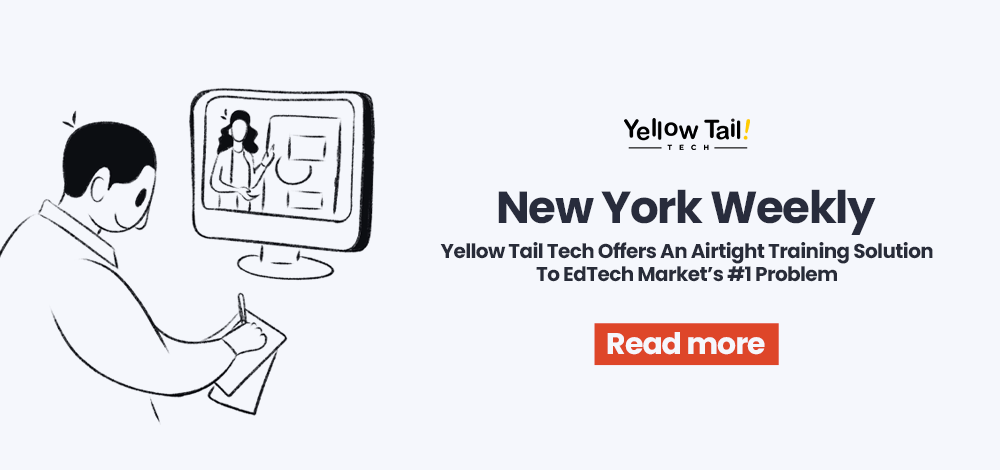A Finnish software engineer named Linus Torvalds created Linux in the early 1990s. Since then, it has transformed from a simple operating system to a dominant force powering servers, mobile devices, and massive data centers. This journey reflects the merging of green computing and AI-driven cloud infrastructures, demonstrating how Linux’s openness, reliability, and versatility are shaping a sustainable and intelligent digital future.
Today, Linux plays a vital role in cloud computing, ai cloud computing, and hybrid cloud environments. As cloud providers increasingly adopt ai in cloud computing to enable business intelligence and data driven insights, Linux continues to stand at the forefront of infrastructure development.
We are exploring the connections between Linux, green computing, and AI integration in cloud environments. This is to showcase how this convergence shapes a sustainable, efficient, and intelligent digital future for business operations seeking cost savings and resource allocation improvements.
Linux’s Revolutionary Journey in Computing
Linux is significant in modern computing, mainly green computing and AI-driven cloud infrastructures. The open-source aspect encourages innovation and sustainability while enabling customization to achieve energy efficiency and environmental objectives. For instance, Let’s Encrypt, highlighted by the Linux Foundation, exemplifies how Linux’s adaptability enables a service providing free, automated SSL/TLS certificates, boosting boosting cloud security and confidence. Similarly, InfluxData’s adoption of Linux, as described by CNCF, demonstrates Linux’s scalability and dependability in handling time-series data processing for real-time analytics, which is essential for ai systems and machine learning applications.
Linux’s impact on cloud computing is undeniable. Most cloud platforms and servers on Linux cloud computing for its reliability, scalability, and performance. Hyperledger showcases the widespread adoption of Linux’s cloud security and performance features in developing cutting-edge blockchain technologies, highlighting Linux’s crucial role in the future of financial services. These case studies showcase Linux’s vital role in supporting scalable, secure, and energy-efficient cloud environments. Highlighting its compatibility with cloud computing to advance green computing and AI innovations.
Linux’s Role in Shaping Eco-Friendly Technology
Green computing is all about using computing power wisely to promote environmental sustainability. This paradigm aims to reduce energy consumption and encourage environmentally friendly practices throughout the lifecycle of cloud based solutions, network infrastructure, and cloud operations. Linux in the cloud plays a crucial role in this field by supporting initiatives that improve resource utilization and decrease the carbon footprint of digital operations.
As an illustration, the Linux Foundation’s Paving the Way to Battle Climate Change initiative highlights how Linux-based platforms can help modernize electric grids, making them more efficient and sustainable. EdgeX Foundry’s retail case study showcases linux cloud computing ability to support supply chain optimization through intelligent retail solutions that improve energy efficiency, substantially impacting the environment.
Furthermore, research like the “Comparative Analysis of Power Consumption of the Linux and its Distribution Operating Systems vs. Windows and Mac Operating Systems” explores how linux in the cloud can achieve better energy efficiency through performance optimization tools and advanced cloud management practices. IBM’s blog on green coding and ethical ai practices also highlights how Linux facilitates ai development and automate processes, contributing to a more sustainable world.
Linux Efficiency in Modern Cloud Environments
Linux goes beyond operational efficiency. It fosters computing resources that support the development of ai applications and machine learning systems. A new era of ai driven cloud technology is emerging—combining Linux, cloud services, ai technologies, and green computing into multi cloud environments that balance environmental awareness with technological progress.
The essence of green computing lies in its commitment to environmental sustainability through the judicious use of technology. Basically, this paradigm seeks to minimize energy consumption and promote eco-friendly practices across the lifecycle of computing devices and software. Linux’s pivotal role in this domain emerges through its support for initiatives that drive energy efficiency and reduce the carbon footprint of digital operations.
The Role of AI and Linux Cloud Computing
AI’s impact on cloud computing has been revolutionary, pushing cloud services to new heights of efficiency and intelligence. Thus, AI’s incorporation into the ai driven cloud optimizes operations and customizes cloud based services. Also services and enhanced analytics, represent a significant step towards more flexible and smart systems. Due to its robust and adaptable ecosystem, linux cloud computing is a critical player in ai development and machine learning advancements.
TechTarget highlights how Linux environments align with cloud computing ai infrastructure needs, making them ideal for ai services and ai systems in cloud environments. From google cloud to oracle cloud infrastructure and microsoft azure, Linux underpins cloud technologies that drive ai transformed cloud computing.
Linux fosters the advancement of AI and ML with its vast array of tools and libraries essential for creating and implementing complex AI models. The ecosystem is home to popular frameworks like TensorFlow, Kaldi, PyTorch, and Caffe, making it perfect for ai exploration. TechTarget highlights how Linux environments perfectly align with the needs of ML and AI infrastructure. making it the ideal choice for ai-driven applications in cloud computing platforms.
Case Studies About Linux Role in AI
Case studies reveal the impact of linux cloud computing in ai-powered cloud infrastructures. OpenMetal highlights Linux’s compatibility with high-performance computing resources and machine learning services, which are essential for ai project implementation. This flexibility aligns with the shift toward intelligent, automated cloud solutions that deliver data analysis and resource allocation optimization.
Hyperledger illustrates how linux in the cloud supports secure data storage, enabling ai services for finance and supply chain management industries. The combination of Linux and ai in cloud computing highlights cloud computing change business strategies, empowering organizations with data driven insights for cost savings and business intelligence.
Linux at the Crossroads of Innovation and Sustainability
Linux’s incorporation into green computing and AI-driven cloud infrastructures represents a significant shift towards environmentally friendly and intelligently automated solutions. Linux is crucial in driving technological progress and aligning with sustainability objectives.
The LF Edge initiative exemplifies Linux’s impact on sustainable and intelligent computing.
The Role of LF Edge in Sustainable Computing
LF Edge demonstrates the capabilities of Linux-powered edge computing frameworks in facilitating intelligent and efficient data processing solutions near the data source. Evidently, this process minimizes the need for data to travel long distances to centralized data centers, ultimately conserving energy and decreasing latency for ai-driven applications. Decentralized approaches highlight linux in the cloud flexibility in supporting green cloud computing architectures that are scalable, efficient, and responsive to real-time data analysis needs.
Enabling Scalable AI Solutions in the Cloud
Furthermore, the CNCF showcases various success stories of companies using Kubernetes, a linux-based container orchestration system, to advance their transition to cloud-native development. Kubernetes improves resource allocation and boosts the scalability and efficiency of AI applications in the cloud. Verizon Media utilized cloud-native technologies to standardize and secure its media brands, showcasing how linux cloud computing solutions that address AI workloads’ scalability needs and green computing’s sustainability goals.
We anticipate the convergence of Linux with AI and green computing to become more profound. The study “An Overview of Computer Operating Systems and Emerging Trends” discusses the increasing impact of Linux on utilizing AI for system management, covering performance tuning and predictive maintenance. This integration represents a move towards self-sufficient and eco-friendly computing infrastructures.
This transformation indicates a future in which Linux influences green computing and AI in cloud technologies and leads efforts toward sustainable, intelligent, and responsive computing environments. As we progress, the combination of Linux, green computing, and AI offers a path where technological advancement merges with environmental responsibility, guiding us toward a more innovative, sustainable digital era.
Embrace Linux for a Greener, Smarter Tech Tomorrow
Linux is a strong base for driving progress in these areas. Linux’s open-source nature, efficiency, and adaptability make it a key player in creating sustainable computing solutions that align with the future of technology. Programs like Lnx for Jobs from Yellow Tail Tech underscore the growing demand for expertise in these areas, highlighting opportunities for professionals and enthusiasts alike to contribute to this evolution.
If you’re interested in exploring Linux and its applications in green computing and AI, take the first step towards a rewarding career, book a 10-minute intro call now. Research and adoption in green, intelligent, and Linux-driven computing promise innovation and sustainability in our digital world.
Frequently Asked Questions
- How does Linux support green computing initiatives?
Linux enables energy-efficient computing through its customizable, open-source architecture. It powers scalable cloud environments, supports eco-friendly data centers, and helps optimize resources for lower energy consumption, making it ideal for sustainable digital operations. - What role does Linux play in AI-powered cloud computing?
Linux provides the foundation for many AI and machine learning tools and frameworks, such as TensorFlow, PyTorch, and Kubernetes. Its stability, flexibility, and performance make it the preferred operating system for running AI models in cloud environments. - Why is Linux important in hybrid and multi-cloud setups?
Linux supports seamless integration across various cloud platforms like AWS, Azure, and Google Cloud. Its compatibility and efficiency help businesses manage workloads across private, public, and hybrid clouds while maintaining performance and security. - What real-world examples show Linux’s role in sustainable AI cloud systems?
What real-world examples show Linux’s role in sustainable AI cloud systems? Case studies from organizations like Hyperledger, OpenMetal, and LF Edge demonstrate how Linux powers secure AI services, efficient edge computing, and energy-saving cloud operations. These examples highlight Linux's central role in shaping a smarter, greener tech future.






